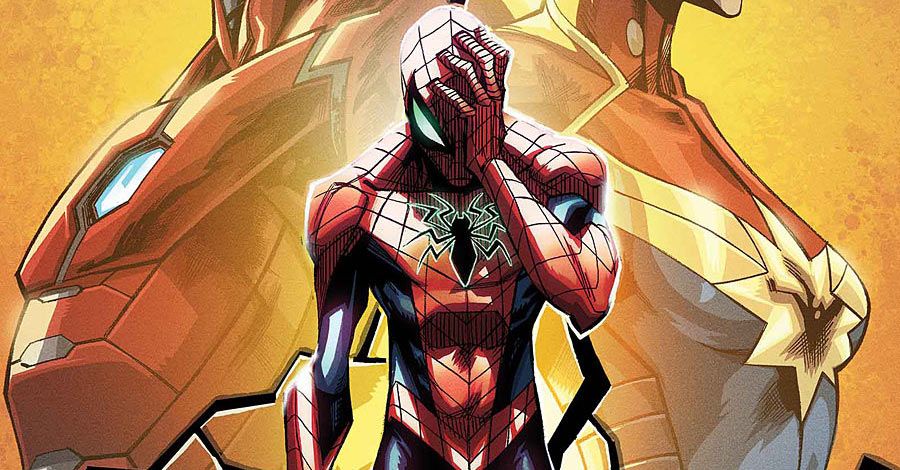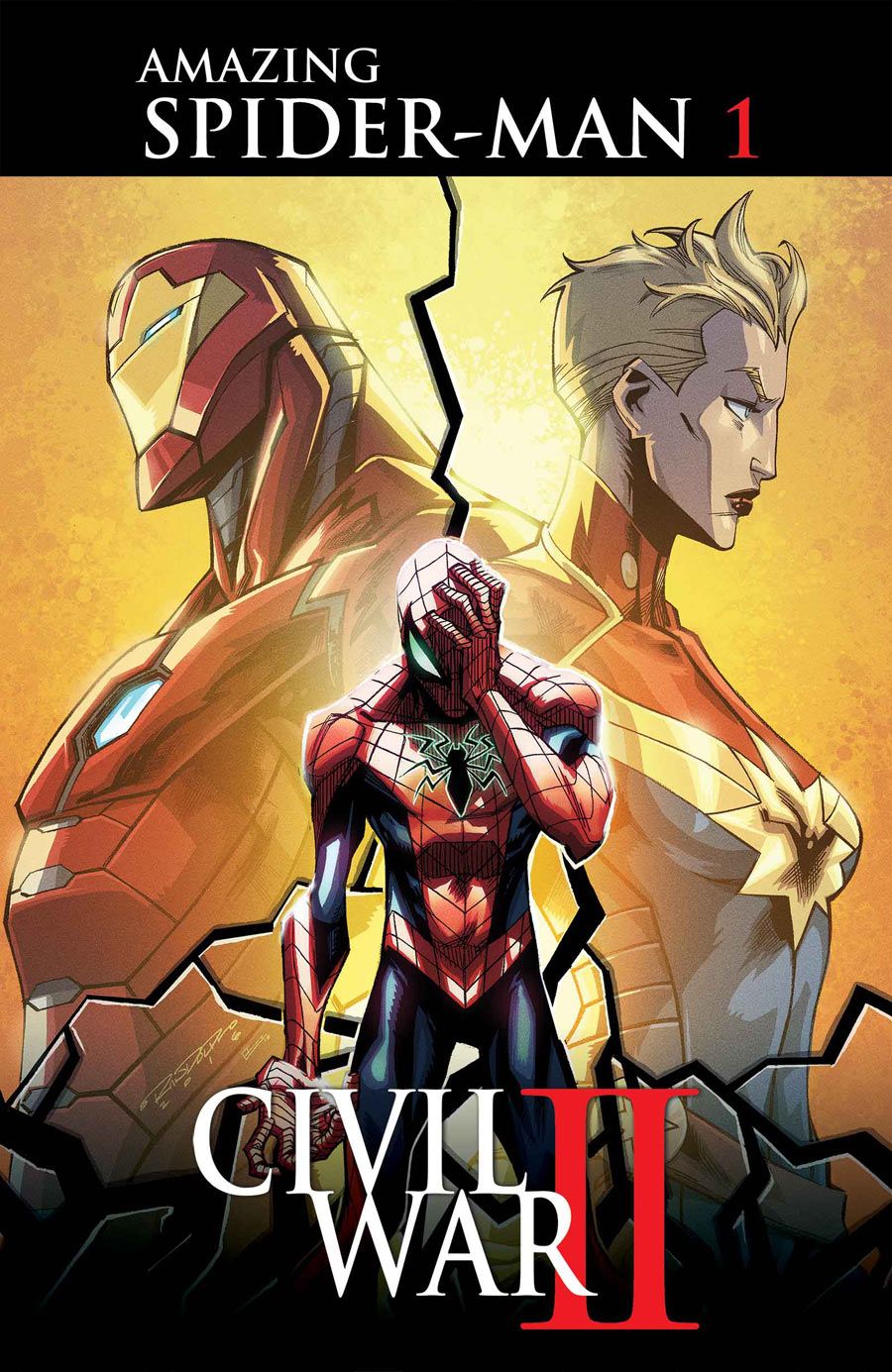Spider-Man knows all too well that with great power must also come great responsibility, but he also knows that big, difficult, and life-changing decisions are part of that equation as well. This summer, his fellow Marvel Universe super heroes will again take sides against each other, and a powerful Inhuman with the ability to predict the future emerges, leaving the Web-Slinger in a difficult bind.
RELATED: Find Out Who's with Iron Man and Who's with Captain Marvel in New "Civil War II" Teasers
How far will Spidey go to help this Inhuman? What side will he choose in this new super human conflict? And how will his new found responsibilities as the head of Parker Industries and a super hero who operates on a global scale factor into the choices he makes? Writer Christos Gage and artist Travel Foreman will attempt to answer those questions this June in the four-issue "Civil War II: Amazing Spider-Man" miniseries. Announced yesterday at Marvel's "Civil War II" panel during the Chicago Comic and Entertainment Expo, CBR News spoke with Gage about how Peter Parker's newfound responsibilities factor into the story, the area of the globe his tale takes place in, and the supporting characters that Spidey will interact with and battle.
CBR News: You're no stranger to Spider-Man having written or co-written numerous stories, including some event tie-ins, but "Civil War II: Amazing Spider-Man" is the first event story featuring Peter Parker in his new status quo as the ultra successful head of Parker Industries and a global crime fighter. How do his new resources and responsibilities change the kind of stories you can tell as part of an event?
Christos Gage: It actually fits in perfectly with the story, because in this case, it's Spider-Man who is in a position of authority, trying to help a younger person (the Inhuman who seems to be able to predict the future) understand and come to grips with the responsibility that comes with his powers. But Pete is also trying to get answers for himself. After his experience in the last "Civil War," he wants to make sure he gets all the information he can before picking a side this time around.
So Spidey is not exactly becoming an Uncle Ben or Obi Wan Kenobi figure, the wise mentor who knows all. He has plenty of unanswered questions, worries and responsibility of his own -- including those that come with running a multinational corporation, as well as being a superhero. Also due to his participation in the last Civil War, he knows how decisions made in a context like this can have huge ramifications. But knowing that and making the right choices are two different things...
The story is about Spider-Man helping a precognitive Inhuman use his powers responsibly -- is there any chance Peter will try to use those same powers to gather information about which side to take in "Civil War II?"
Yes, that's a big part of our story. Additionally, over the course of the miniseries, the Inhuman will make a prediction that, while not of the world- or universe-ending variety, could well mean the end of one character's world. It's really dealing with classic Spider-Man themes: power and responsibility; facing a situation where even if you win, you can also lose -- or you can just lose.
Spider-Man now operates on a global scale. How important is the setting to this story? Can you tell us about some of the locales you'll visit in the series?
I spoke with ["Amazing Spider-Man" writer] Dan Slott and [editor] Nick Lowe before plotting the story to make sure we were coordinating things well, and they liked the idea of setting this at Parker Industries New York, which hasn't been seen all that much in the main title. That office also has some terrific supporting characters, like Harry Osborn and Clayton Cole, who will be a part of our story. So it's Spidey back in Manhattan, which is fun!
We'll also see the Human Torch -- who as a character is a great bridge between the worlds of Spidey and the Inhumans -- and, as villains, one Lee/Ditko era antagonist who shall remain a mystery for now, as well as a personal obscure favorite, the Vulturions!
"Civil War II: Amazing Spider-Man" marks Travel Foreman's return to Marvel after a number of years doing mostly DC and Valiant projects. What's it like working with Travel on a book like this? What do you enjoy most about his style and depictions of Spidey?
Travel has a great dynamic action style and a fantastic, innovative approach to page composition that I can't wait to see him cut loose on, but I also love his character "acting," which I think is an under-appreciated part of his repertoire. That'll be crucial to our story. I'm thrilled to be working with him!
Finally, how accessible and self-contained is "Civil War II: Spider-Man?" Is this something new readers can pick up and read on its own even if they're not currently reading "Amazing Spider-Man" or the main "Civil War II" series?
New readers can easily pick up the mini and get all the information they need to follow and understand the story. Those following the larger "Civil War" saga will see where it fits in, and regular Spidey readers will have the larger context of that series, but new readers should have no problems at all.
"Civil War II: Amazing Spider-Man" #1 goes on sale this June from Marvel Comics.


